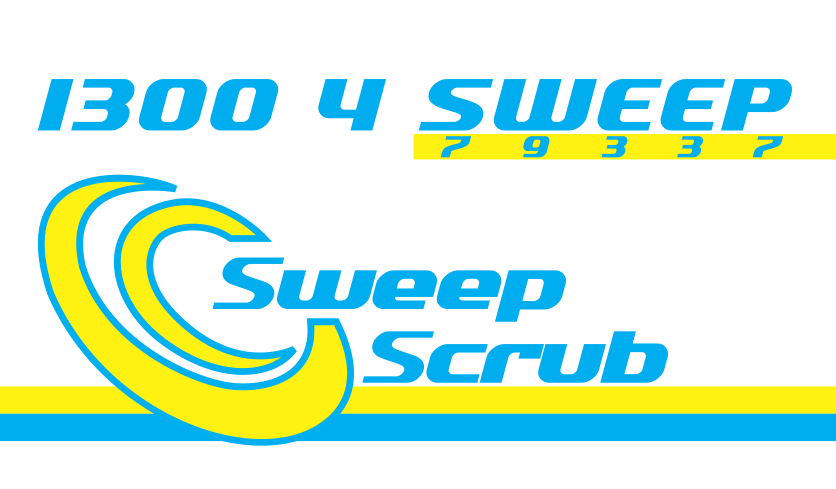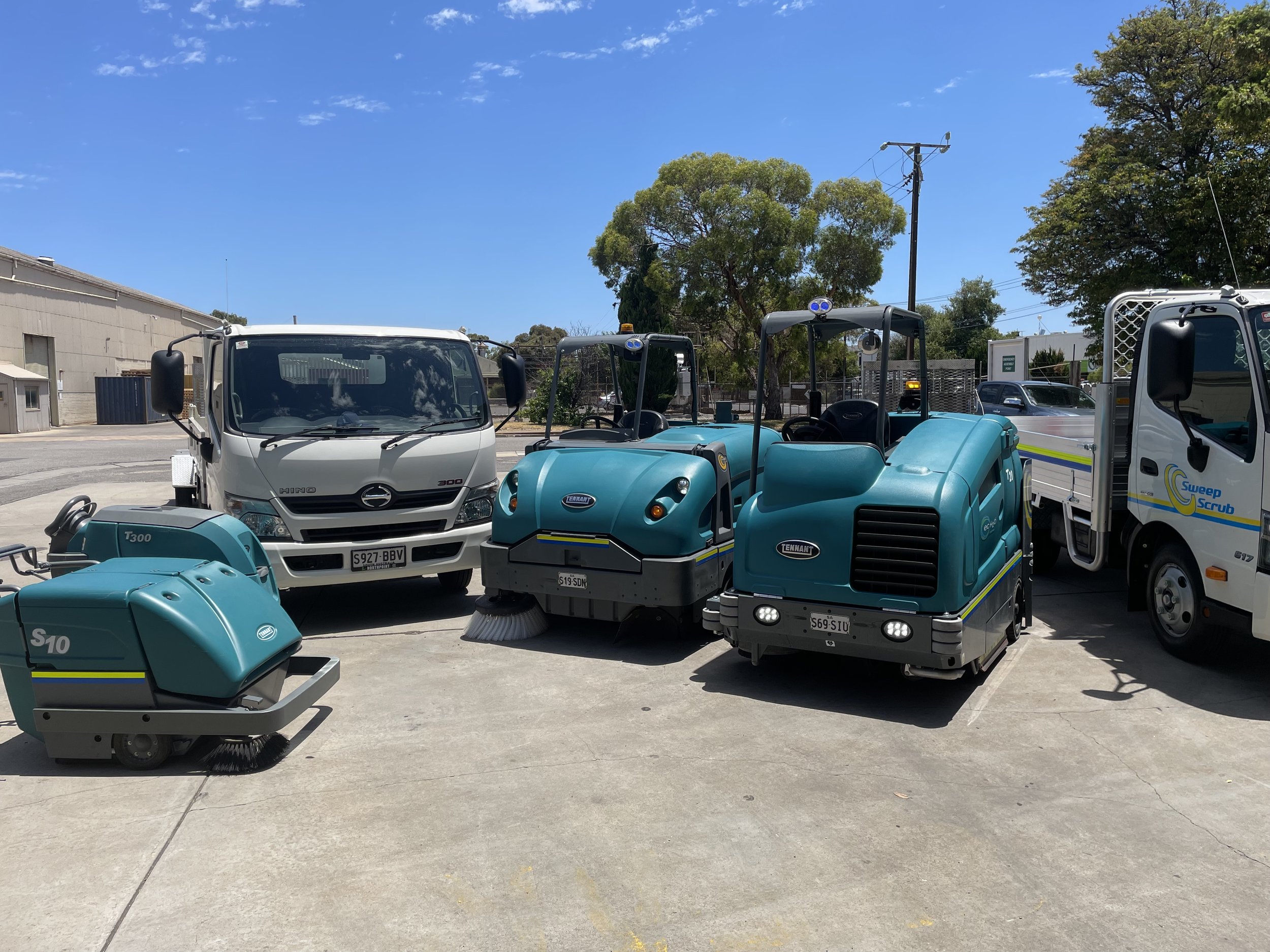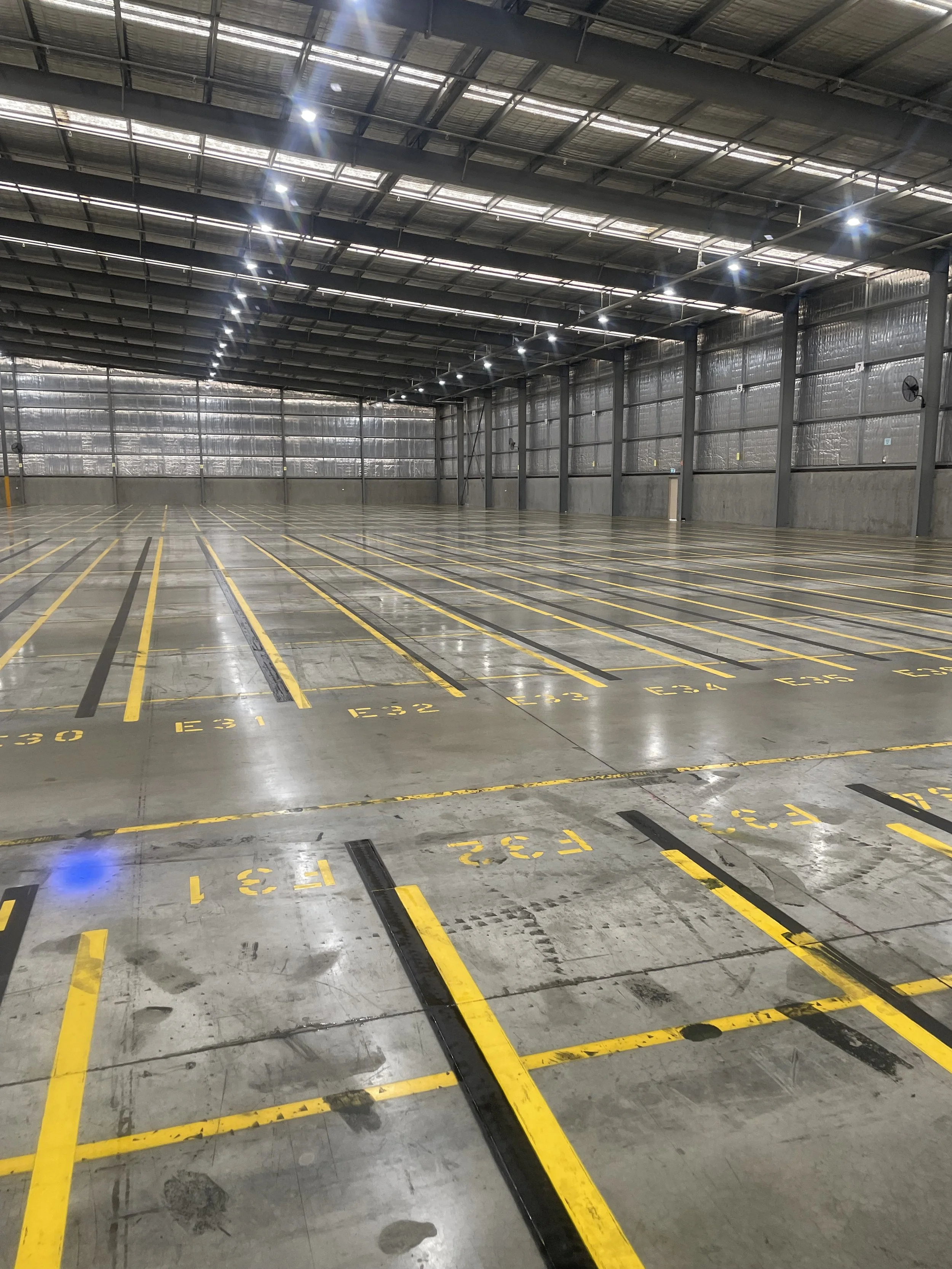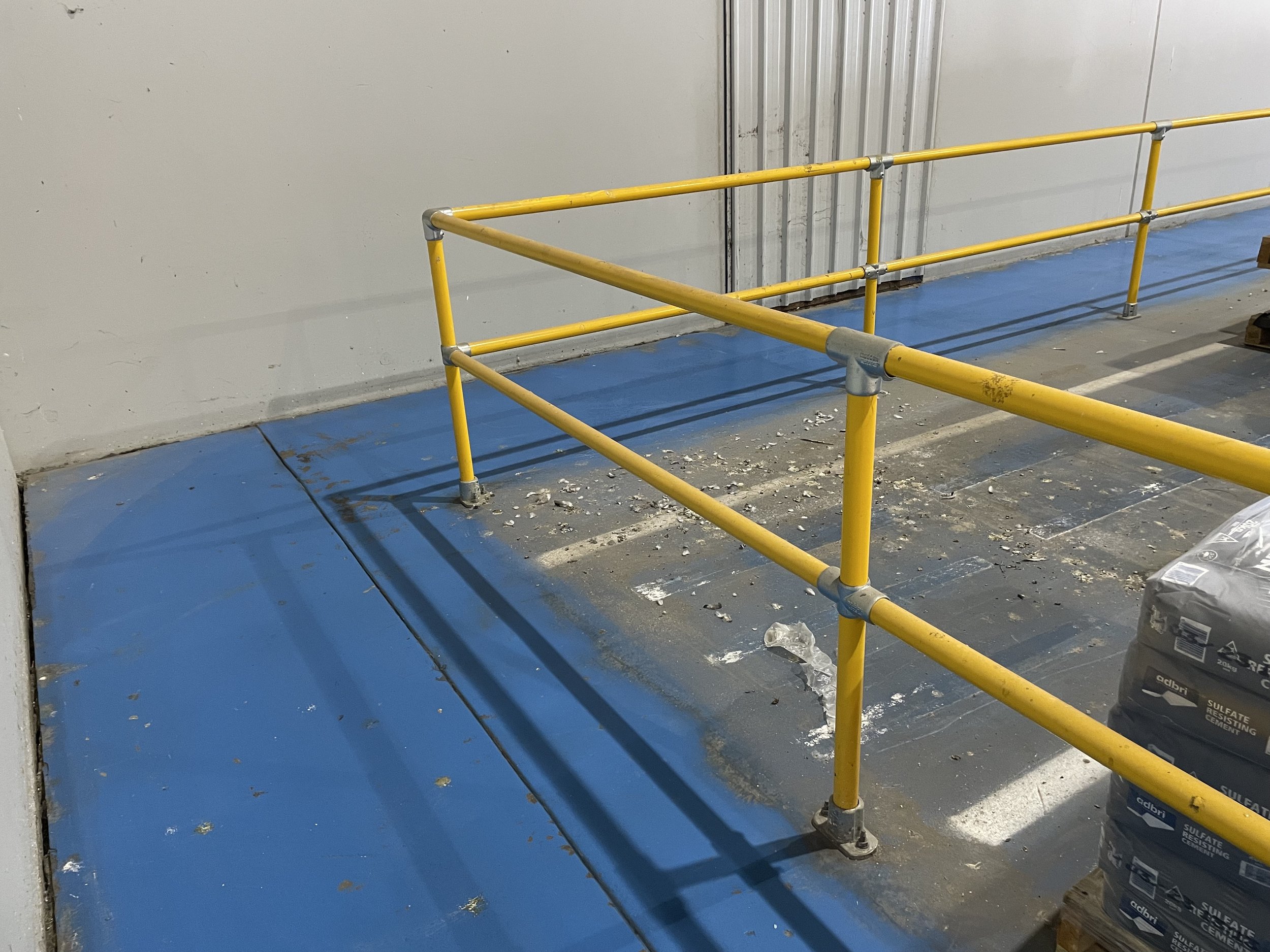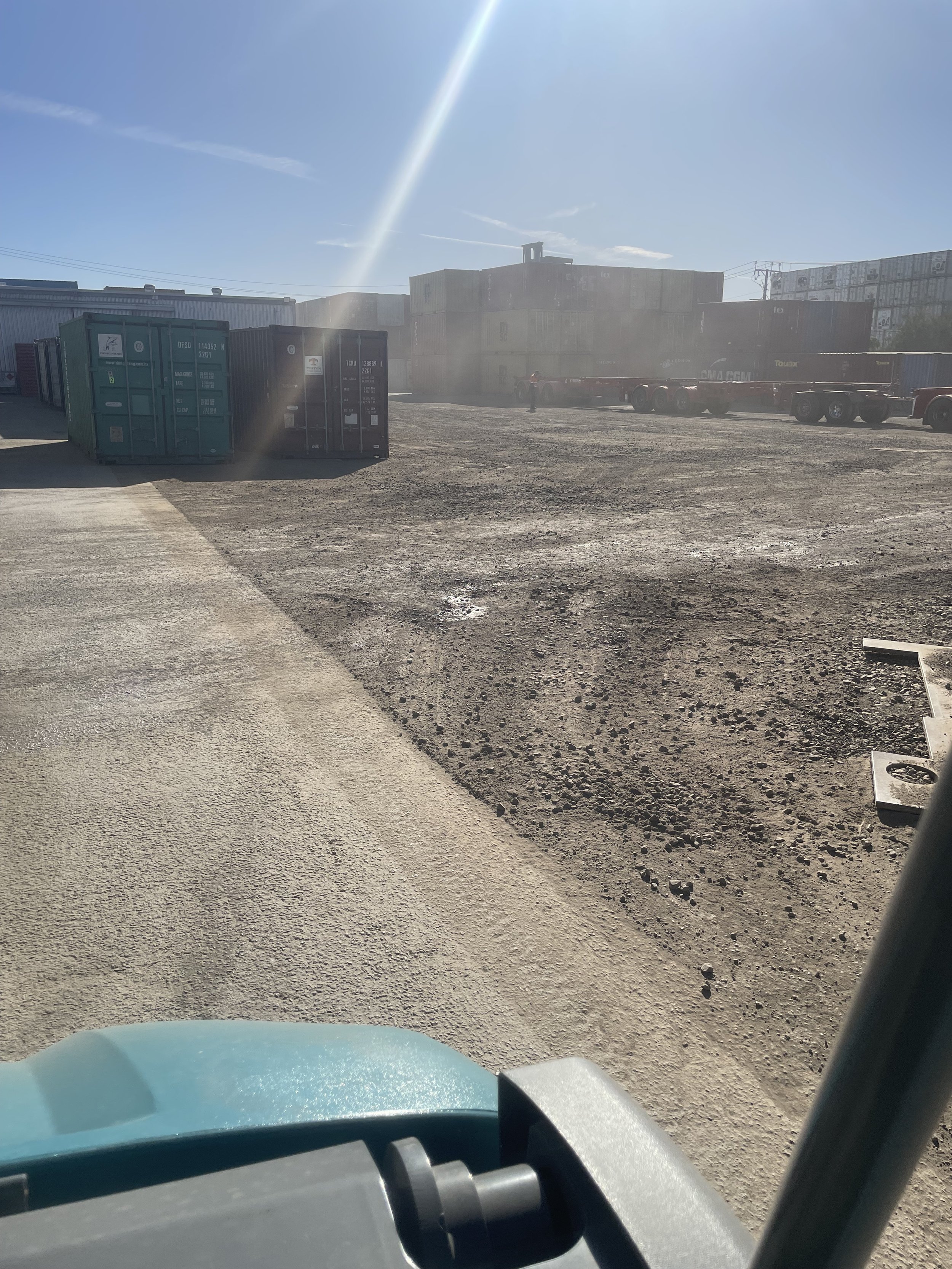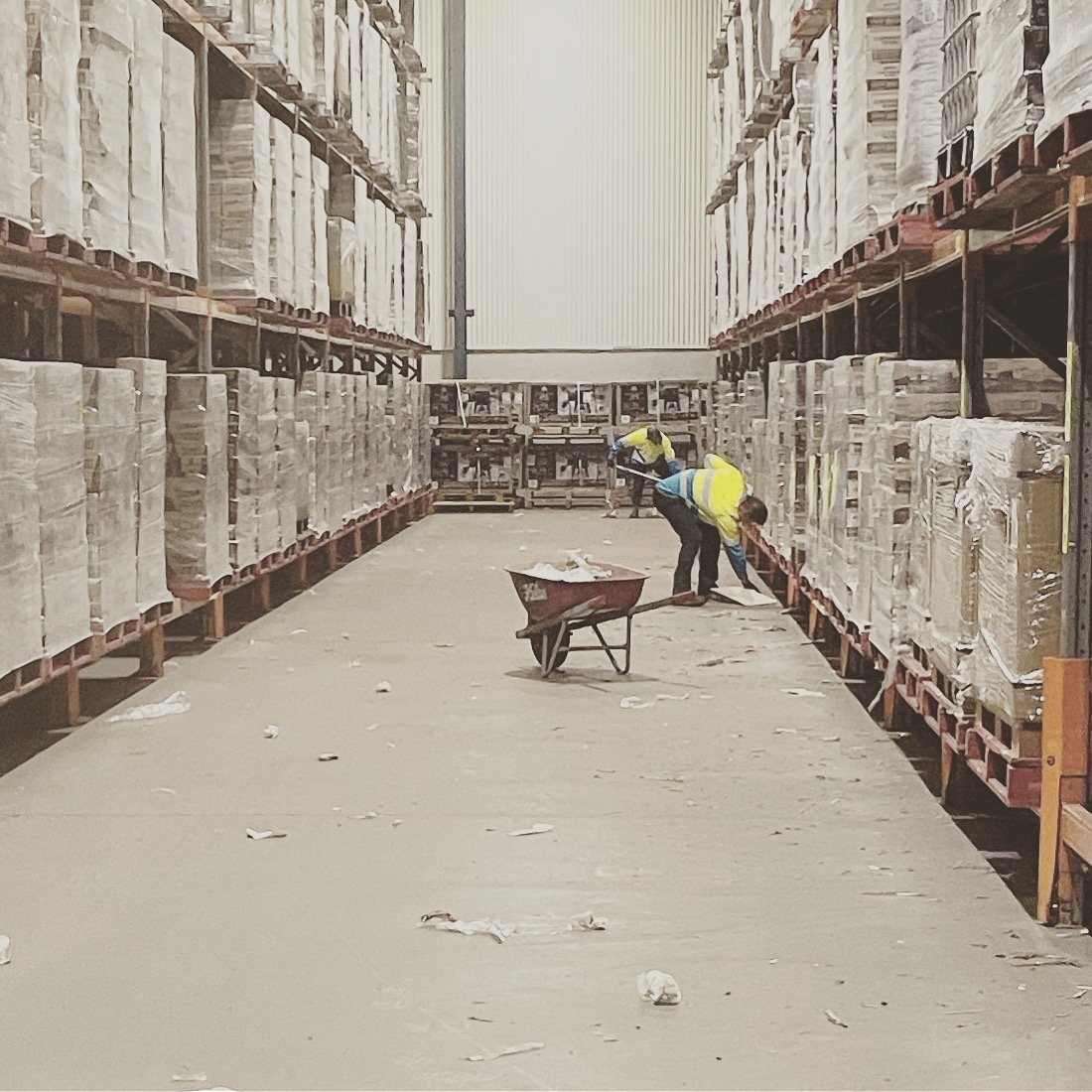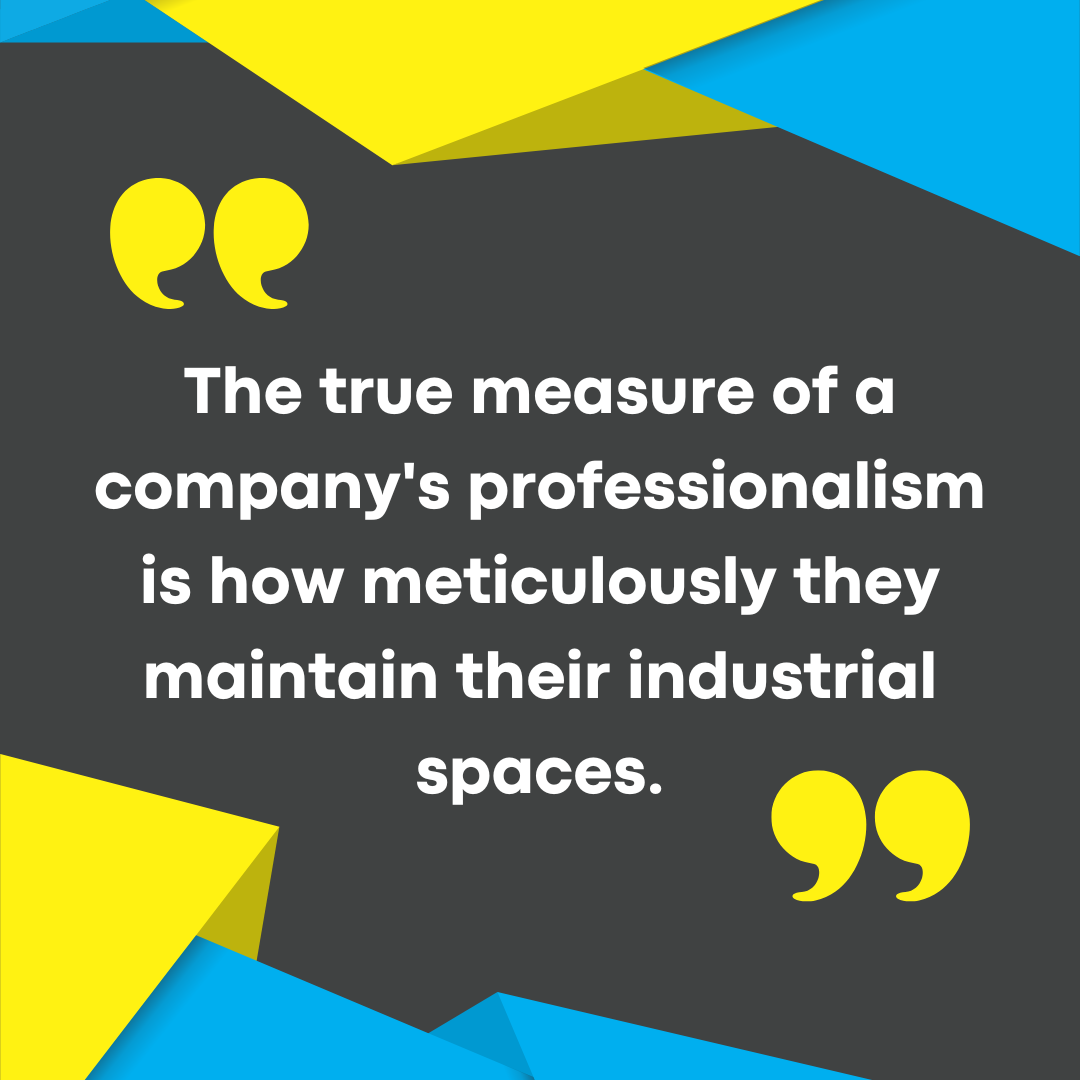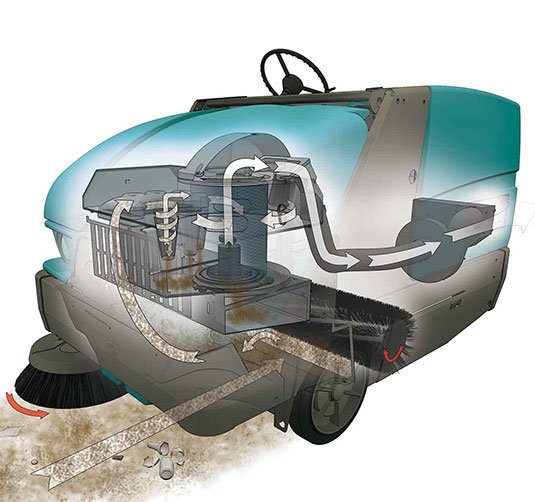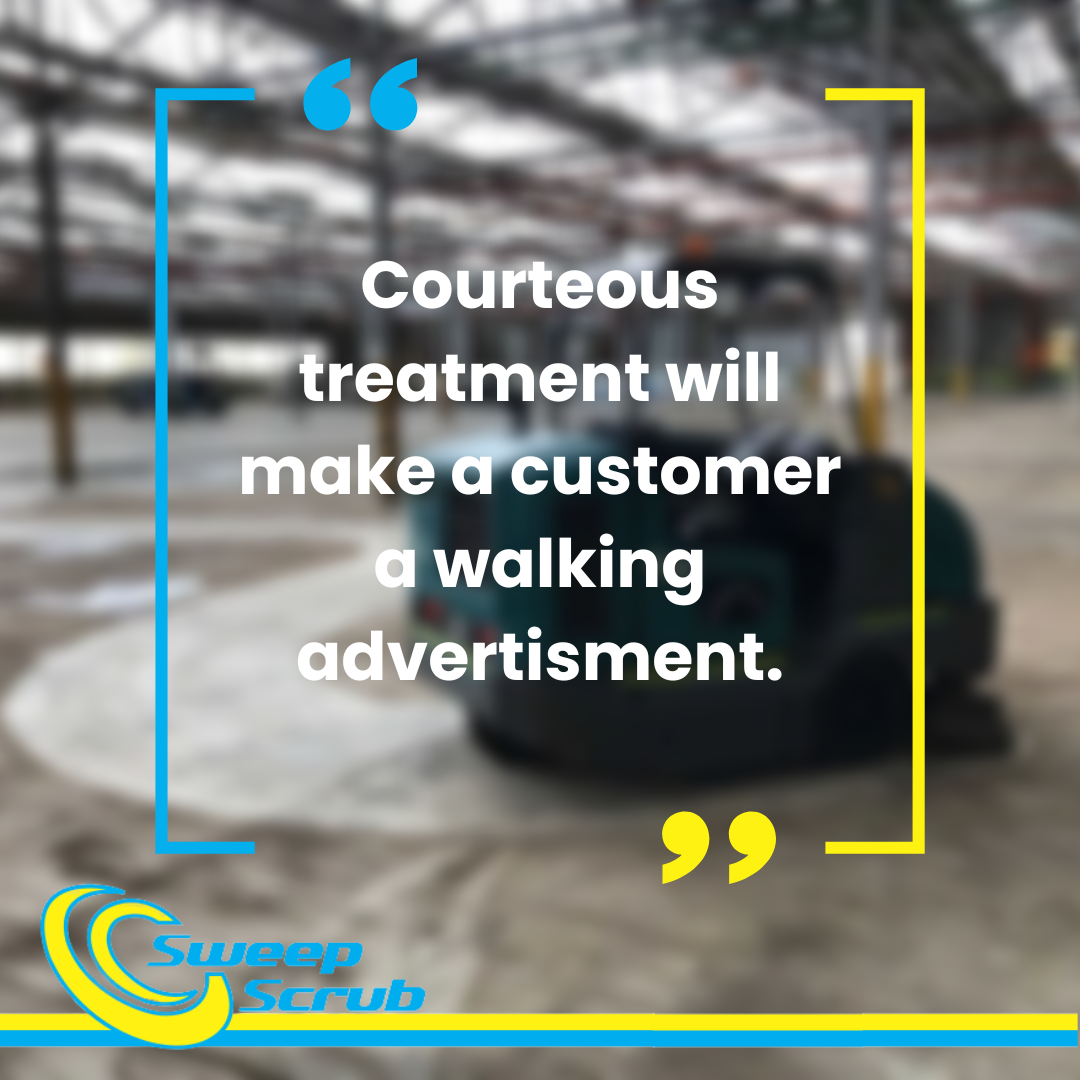Overview of Industrial Cleaning Services
Definition of Industrial Cleaning Industrial cleaning refers to the cleaning and maintenance of industrial facilities, equipment and machinery, including warehouse floor cleaning and factory floor cleaning, in various industries such as manufacturing, production, and processing. It involves the use of specialized cleaning equipment, chemicals, and techniques to remove dirt, debris, and contaminants from various surfaces, including floors, walls, ceilings, and equipment.
Importance of Industrial Cleaning Industrial cleaning is critical to maintaining a safe and healthy work environment, improving the performance and lifespan of equipment, and ensuring compliance with regulatory standards.
Types of Industrial Cleaning Services The cleaning process may involve tasks such as vacuuming, industrial sweeping, pressure washing services, industrial scrubbing, and sanitizing to remove any dust, grime, or other contaminants that may accumulate over time.
Benefits of Hiring an Industrial Cleaning Services Provider
Health and Safety Benefits Regular cleaning can help reduce the risk of slips, trips, and falls, as well as other accidents that can cause injury to employees. A clean and well-organized workplace can boost employee morale and contribute to a positive work environment.
Wear suitable shoes and don’t slip, whilst taking trips to see falls.
Time and Cost Savings Regular cleaning and maintenance can help extend the lifespan of equipment, saving businesses money in the long run by reducing the need for repairs or replacements.
Improved Productivity Clean and well-maintained industrial facilities can improve productivity by reducing equipment downtime and minimising the risk of accidents or injuries that could cause disruptions to work.
Compliance with Regulations Industrial cleaning services can ensure that facilities meet regulatory standards for cleanliness and sanitation, reducing the risk of fines or legal issues.
Common Types of Industrial Cleaning Equipment
Exit cleaning, general warehouse cleaning and factory floor cleaning will all benefit from a combination of equipment and applications. A typical exit clean will include a pressure washing service, industrial sweeping and industrial floor scrubber. Warehouse cleaning and factory floor cleaning will include a similar combination to exit cleaning, more commonly without pressure cleaning.
Pressure Washers Pressure washing services are used to clean surfaces by spraying high-pressure water. Industrial pressure cleaning is effective in removing dirt, grease, paint, and other contaminants.
Benefits: Industrial pressure cleaning is effective in removing tough stains, dirt, and grime. Pressure washing services provide a versatile option for use on various surfaces such as concrete, metal, and vehicles. Efficient and time-saving.
Limitations: Industrial pressure cleaning with high-pressure water can damage delicate surfaces or cause injury if not used properly. Water usage may be high, requiring a constant water supply.
Industrial Vacuums Powerful vacuum cleaners capable of handling large amounts of debris, dust, and liquids. They are commonly used in factory floor cleaning, cleaning warehouse floors, exit cleaning and construction sites.
Benefits: Powerful suction for effective debris and dust collection. Can handle large volumes of waste. Improves air quality by capturing fine particles.
Limitations: Some models may be bulky and require maneuvering in tight spaces. May require frequent emptying and filter maintenance.
Steam Cleaners Use high-pressure steam to sanitize and clean surfaces. They are effective in removing grease, stains, and bacteria. Steam cleaners are commonly used in food processing facilities, hospitals, and industrial kitchens.
Benefits: Deep cleans and sanitizes surfaces. Uses minimal chemicals or detergents. Effective in removing grease, stains, and bacteria.
Limitations: Not suitable for all surfaces (e.g., sensitive materials). May require longer cleaning time compared to other methods. Water usage may be high.
Industrial Floor Scrubbers An industrial floor scrubber is a machine designed to clean and scrub large areas, typically for warehouse floor cleaning and factory floor cleaning. They have rotating brushes or pads to remove dirt and grime from surfaces, such as concrete or tile floors.
Industrial Floor Sweepers An industrial floor sweeper is designed to sweep and collect debris from floors, including dirt, dust, and small particles. They are especially useful for warehouse sweeping and factory cleaning services, and also outdoor cleaning of car parks, yards, footpaths and exit cleaning.
Benefits: Efficiently cleans large floor areas. Provides deep cleaning, removing tough stains and dirt. Increases productivity and saves time compared to manual methods.
Limitations: May have limitations in narrow or confined spaces.
Carpet Cleaners Machines designed specifically for deep cleaning and extracting dirt from carpets and upholstery. They use brushes and cleaning solutions to remove stains and restore the appearance of carpets.
Benefits: Effectively removes dirt, stains, and odors from carpets and upholstery. Restores the appearance of carpets. Some models offer quick drying times.
Limitations: Requires time for carpets to dry after cleaning. Bulky and may be challenging to maneuver in tight spaces. Some models may leave behind excess moisture.
Ultrasonic Cleaners These machines use ultrasonic waves and cleaning solutions to remove dirt, grease, and contaminants from delicate and hard-to-reach areas. They are commonly used in electronics, jewelry, and medical device manufacturing.
Benefits: Thoroughly cleans delicate and hard-to-reach areas. Gentle on sensitive parts. Removes contaminants without manual scrubbing.
Limitations: Limited capacity for larger parts or equipment. May require specific cleaning solutions or detergents. Higher initial cost compared to traditional cleaning methods.
Industrial Degreasers Chemical cleaners formulated to remove grease, oil, and other stubborn contaminants from machinery, equipment, and surfaces. They are often used in automotive, manufacturing, and as an industrial floor cleaner. For best results use an industrial floor cleaner in and industrial floor scrubber.
Benefits: Effectively removes grease, oil, and tough contaminants. Suitable for heavy machinery and equipment. Increases equipment performance and lifespan.
Limitations: Requires proper handling and ventilation due to potentially harmful chemicals. May require multiple applications for heavily soiled surfaces. Some formulations may be flammable.
Industrial Cleaning Techniques
Dry Cleaning Use of (see above) an industrial floor sweeper, industrial vacuum.
Wet Cleaning Techniques Use of (see above) an Industrial floor scrubber, pressure washer, steam cleaner, ultrasonic cleaners, industrial degreasers.
Abrasive Cleaning Techniques Use of (see above) Industrial floor scrubber, pressure washer, industrial degreasers.
Industrial Cleaning for Different Industries
Automotive Industry Industrial cleaning in the automotive sector focuses on cleaning production areas, assembly lines, and automotive parts. It involves removing grease, oil, and other contaminants from machinery, equipment, and floors. High-pressure washing, parts cleaning, and degreasing are common cleaning techniques.
Manufacturing Facilities Industrial cleaning in manufacturing facilities focuses on maintaining cleanliness in production areas, warehouses, assembly lines, and equipment. It includes cleaning floors, removing debris, dusting surfaces, and sanitizing equipment to ensure a safe and efficient working environment.
Food Processing and Manufacturing Industrial cleaning in the food industry is essential to maintain hygiene and prevent contamination. Industrial cleaning services in this sector involve deep cleaning and sanitization of processing equipment, production areas, storage facilities, and food preparation surfaces. Special attention, through factory floor cleaning is critical to adhering to food safety standards and regulations.
Petrochemical and Oil Refineries Industrial cleaning in petrochemical and oil refineries involves the cleaning and maintenance of equipment, tanks, pipelines, and storage areas. This includes degreasing, descaling, and removing hazardous substances to ensure safe and efficient operations.
Data Centers and IT Facilities Industrial cleaning in data centers and IT facilities focuses on maintaining a dust-free and clean environment to protect sensitive equipment and prevent disruptions. Cleaning services include air filtration, server room cleaning, and equipment maintenance.
Hospitality and Entertainment Industrial cleaning services for hotels, resorts, and entertainment venues encompass cleaning and maintenance of guest rooms, public areas, kitchens, restaurants, and event spaces. This includes carpet cleaning, upholstery cleaning, floor care, and general cleaning to ensure a pleasant and hygienic environment for guests.
Warehouses and Distribution Centres Industrial warehouse cleaning services involve, dusting, and maintenance of storage racks and shelves, industrial sweeping and industrial scrubbing. Additionally, industrial pressure cleaning may be required to clean loading docks, parking areas, and exterior surfaces.
Construction Sites After construction projects, industrial cleaning services are required for cleaning warehouse floors to remove debris, dust, and leftover materials from construction sites. This includes cleaning windows, floors, walls, and surfaces. Heavy-duty equipment such as industrial sweepers, vacuums, and pressure washers may be utilised.
Factors to Consider when Engaging Industrial Cleaning Services
Expertise and Experience Look for an industrial warehouse cleaning services provider with extensive experience in industrial cleaning? Consider their track record, industry-specific knowledge, and the types of industries they have served in the past. Industrial cleaning requires specialized skills and equipment, so it's important to choose a provider with relevant expertise.
Services Offered Assess the range of services offered by the cleaning company. Determine if they can meet your specific cleaning needs, such as floor cleaning, equipment cleaning, high-pressure washing, waste management, or specialized cleaning for sensitive areas. Ensure that their services align with your requirements. A pressure washing services provider may be different to an industrial sweeping company, however most quality industrial cleaning services providers will provide a combination.
Certifications and Compliance Check if the industrial cleaning company has the necessary certifications, licenses, and permits to operate legally. This may include certifications related to safety, environmental regulations, or specific industry standards. Compliance with relevant regulations is crucial to ensure the company follows best practices and operates responsibly.
Insurance Coverage Verify that the cleaning company has appropriate insurance coverage, including general liability insurance and workers' compensation insurance. This helps protect you from potential liability in case of accidents, damages, or injuries that may occur during the cleaning process.
Safety Measures Ask about the safety protocols and measures followed by the cleaning service provider. Industrial cleaning often involves working with potentially hazardous substances, equipment, or in challenging environments. The company should have safety guidelines, training programs, and equipment to ensure the well-being of their employees and minimize risks.
References and Reviews Request references or seek out reviews and testimonials from previous clients. Feedback from other businesses in similar industries can provide valuable insights into the quality of service, reliability, and professionalism of the cleaning company.
Customisation and Flexibility Assess the cleaning company's ability to tailor their services to your specific needs. Factory cleaning services may have unique requirements or schedules, compared to cleaning warehouse floors, so the industrial floor cleaner should be willing to accommodate your preferences and be flexible in their approach.
Pricing and Contracts Request detailed pricing information, including any additional charges or fees for specialized services. Compare the pricing with other cleaning service providers to ensure it is fair and reasonable. Additionally, review the terms and conditions of the contract, including termination clauses, to ensure they align with your expectations.
Sustainability Practices If environmental sustainability is a priority for your organisation, inquire about the cleaning company's sustainability practices. This may include their use of eco-friendly cleaning products, recycling programs, or energy-efficient equipment. Choose a provider that aligns with your sustainability goals.
Communication and Customer Support Evaluate the communication channels and responsiveness of the cleaning service provider. Clear communication is essential for addressing any concerns, providing feedback, or requesting additional services. A reliable provider should have responsive customer support and be proactive in addressing your needs.
What are the Industrial Cleaning trends
Industrial cleaning is an evolving field, and several trends have emerged in recent years. Here are some prominent industrial cleaning trends:
Green Cleaning There is a growing emphasis on environmentally friendly cleaning practices. Companies are increasingly adopting green cleaning products, equipment, and techniques that minimize the use of harmful chemicals, reduce waste, and promote sustainability.
Automation and Robotics Industrial cleaning is incorporating automation and robotics to improve efficiency and effectiveness. Robotic cleaners and autonomous equipment are being used on industrial floor scrubbers, vacuuming, and window cleaning, reducing manual labor and enhancing productivity.
IoT and Smart Cleaning Internet of Things (IoT) technology is being integrated into cleaning equipment and systems. IoT-enabled devices can track cleaning performance, monitor equipment status, optimize cleaning schedules, and provide real-time data for better decision-making and resource allocation.
Data-Driven Cleaning The use of data analytics is gaining traction in industrial cleaning. Cleaning companies are leveraging data to identify cleaning patterns, optimise workflows, predict maintenance needs, and measure performance. Data-driven insights help improve cleaning efficiency, reduce costs, and enhance overall cleaning outcomes.
Electrostatic Disinfection Electrostatic sprayers are being increasingly used for disinfection purposes. These sprayers charge disinfectant particles, causing them to adhere to surfaces more effectively, ensuring comprehensive coverage and improved disinfection in industrial settings.
Enhanced Safety Measures External issues cause a heightened focus on safety and hygiene in industrial cleaning. Cleaning companies are implementing stricter protocols, providing training on infection control, and using high-quality personal protective equipment (PPE) to protect workers and maintain clean and safe environments.
Specialised Cleaning Services Industries with unique cleaning needs, such as healthcare, food processing, and electronics manufacturing, require specialised cleaning services. Cleaning companies are investing in specialised training, equipment, and certifications to meet the stringent cleanliness standards of these industries. who ever though cleaning warehouse floors could get so complicated.
Focus on Indoor Air Quality Indoor air quality is receiving increased attention in industrial cleaning. Proper ventilation, air filtration, and duct cleaning are being prioritized to improve air quality, remove allergens, and reduce the spread of airborne contaminants.
Cross-Contamination Prevention Preventing cross-contamination is crucial in industrial cleaning. Cleaning companies are adopting colour-coded cleaning tools, implementing proper cleaning protocols, and using advanced cleaning techniques to minimize the risk of spreading contaminants from one area to another.
Customised Cleaning Solutions Industrial cleaning providers are offering tailoured solutions to meet the specific needs of different industries and facilities. Customised cleaning plans consider factors such as the nature of the facility, cleaning requirements, budget constraints, and sustainability goals.
Choosing the Right Industrial Cleaning Service Provider
Choosing the right industrial cleaning services provider is essential to ensure the cleanliness, safety, and efficiency of your facility. Here are some key considerations to help you make an informed decision:
Determine Your Cleaning Needs Assess your specific cleaning requirements, including the size of your facility, the areas to be cleaned, the frequency of cleaning, and any specialised cleaning needs. This will help you identify cleaning companies that can meet your specific needs.
Industry Experience and Expertise Look for a cleaning services provider with experience in your industry. They should have a track record of serving similar facilities and understanding the unique cleaning challenges and compliance requirements. Their expertise will ensure efficient and effective cleaning.
Reputation and References Research the reputation of the cleaning services provider. Seek recommendations from trusted sources or ask the company for references from their existing clients. Contact these references to inquire about the quality of service, reliability, and professionalism of the provider.
Certifications and Compliance Check if the cleaning company has the necessary certifications, licenses, and compliance with industry standards and regulations. This may include certifications related to safety, environmental practices, quality management, and specific industry requirements. Compliance ensures adherence to best practices and legal obligations.
Insurance Coverage Verify that the cleaning company has adequate insurance coverage, including general liability insurance and workers' compensation insurance. This protects you from potential liability in case of accidents, damages, or injuries that may occur during the cleaning process.
Training and Staffing Ask about the training and qualifications of the cleaning company's staff. Ensure that they undergo proper training in cleaning techniques, safety protocols, and the use of equipment and chemicals. Well-trained staff will deliver quality cleaning services and minimize the risk of accidents or damage.
Safety Measures Cleaning services providers should prioritize safety in their operations. Inquire about their safety protocols, risk assessment procedures, and adherence to Work Health and Safety (WHS) guidelines. They should have proper safety equipment, procedures, and a commitment to maintaining a safe working environment.
Customization and Flexibility Assess the provider's ability to customize their services to meet your specific needs. They should be flexible in accommodating your cleaning schedules, adjusting services as per your requirements, and addressing any specific concerns or requests.
Quality Control and Inspections Ask about the provider's quality control processes and inspections. They should have mechanisms in place to ensure consistent cleaning standards, regular inspections, and feedback channels for continuous improvement. Quality control measures are essential for maintaining high cleaning standards.
Pricing and Contracts Obtain detailed pricing information from the cleaning services provider. Compare their pricing structure with other providers in the market to ensure it is fair and reasonable. Review the terms and conditions of the contract, including termination clauses and service guarantees, before signing any agreement.
Communication and Responsiveness Effective communication is vital for a successful partnership. Assess the provider's communication channels, responsiveness to queries or concerns, and their ability to address issues promptly. A reliable provider should have accessible customer support and maintain open lines of communication.
By considering these factors and conducting thorough research, you can select an industrial cleaning services provider that aligns with your needs, ensures a clean and safe working environment, and delivers consistent and reliable cleaning outcomes.
In conclusion, industrial cleaning services play a crucial role in maintaining cleanliness, safety, and efficiency in various industries and facilities. Industrial cleaning involves specialised techniques, equipment, and expertise to address the unique cleaning needs of different sectors.
Industrial cleaning services encompass a wide range of activities, including warehouse floor cleaning, equipment cleaning, high-pressure washing, exit cleaning, waste management, disinfection, factory floor cleaning and general maintenance cleaning. These services are tailoured to meet the specific requirements of industries such as manufacturing, food processing, warehouses, healthcare, automotive, power plants, construction, and more.
When selecting an industrial cleaning services provider, it is important to consider factors such as their expertise and experience in your industry, certifications and compliance with regulations, reputation and references, insurance coverage, training and staffing, safety measures, customisation and flexibility, quality control processes, pricing, and communication.
Choosing the right industrial cleaning services provider ensures that your facility remains clean, safe, and compliant with industry standards. It promotes a healthy working environment, enhances productivity, protects assets, and leaves a positive impression on employees, clients, and visitors.
By prioritising the selection of a reliable and competent cleaning services provider, you can have peace of mind knowing that your industrial cleaning needs are being met by professionals who understand the specific challenges and requirements of your industry.
